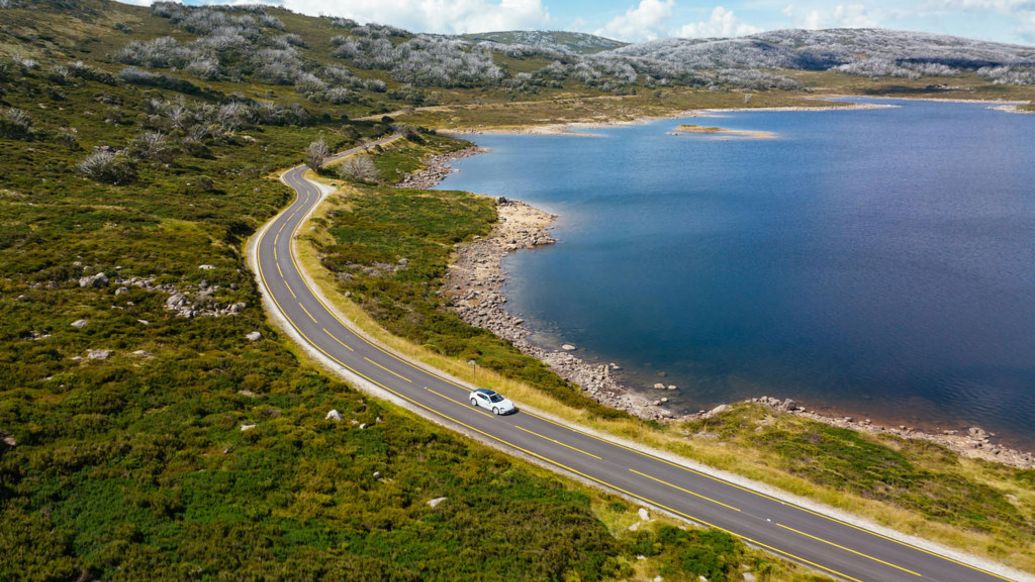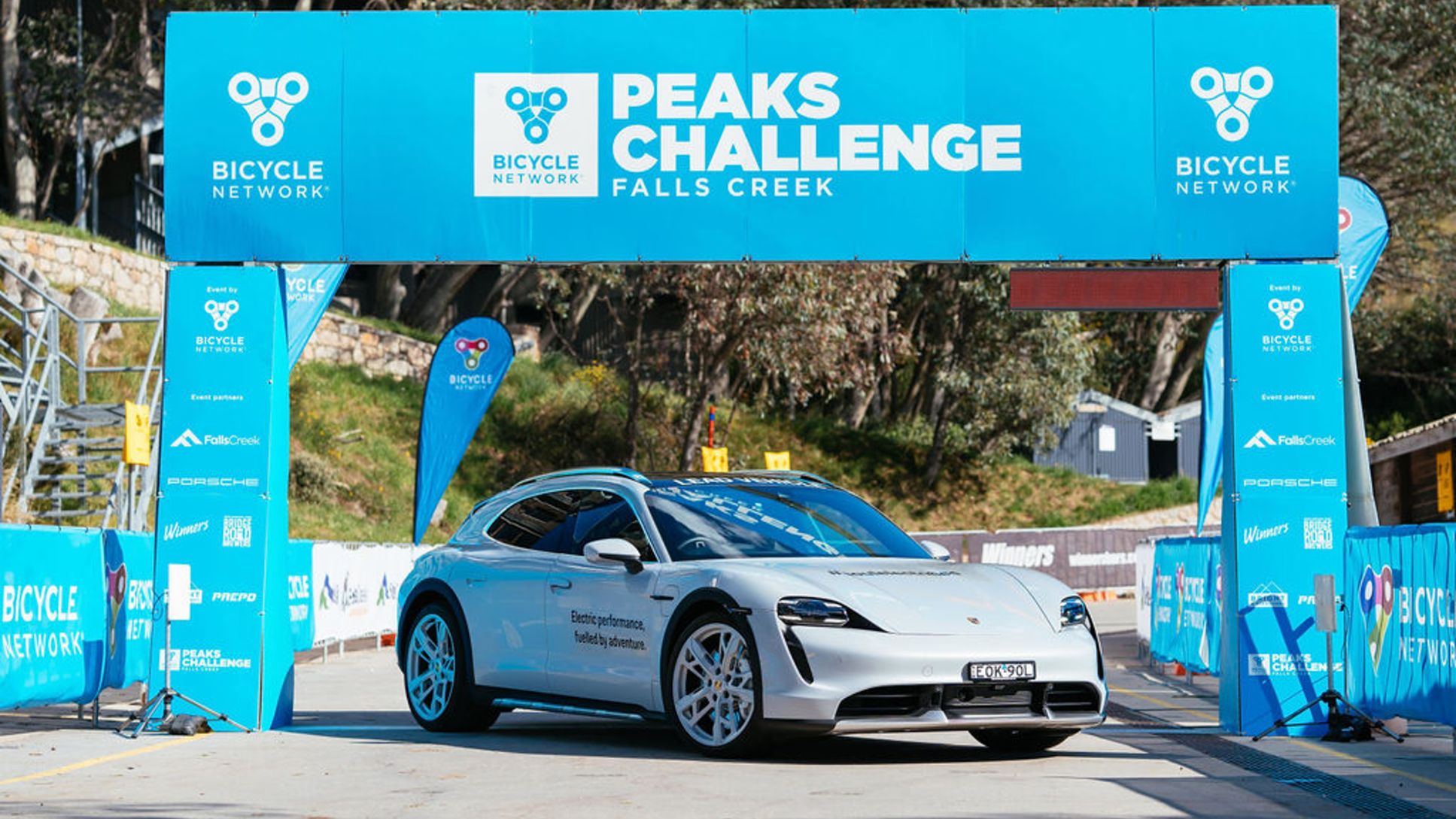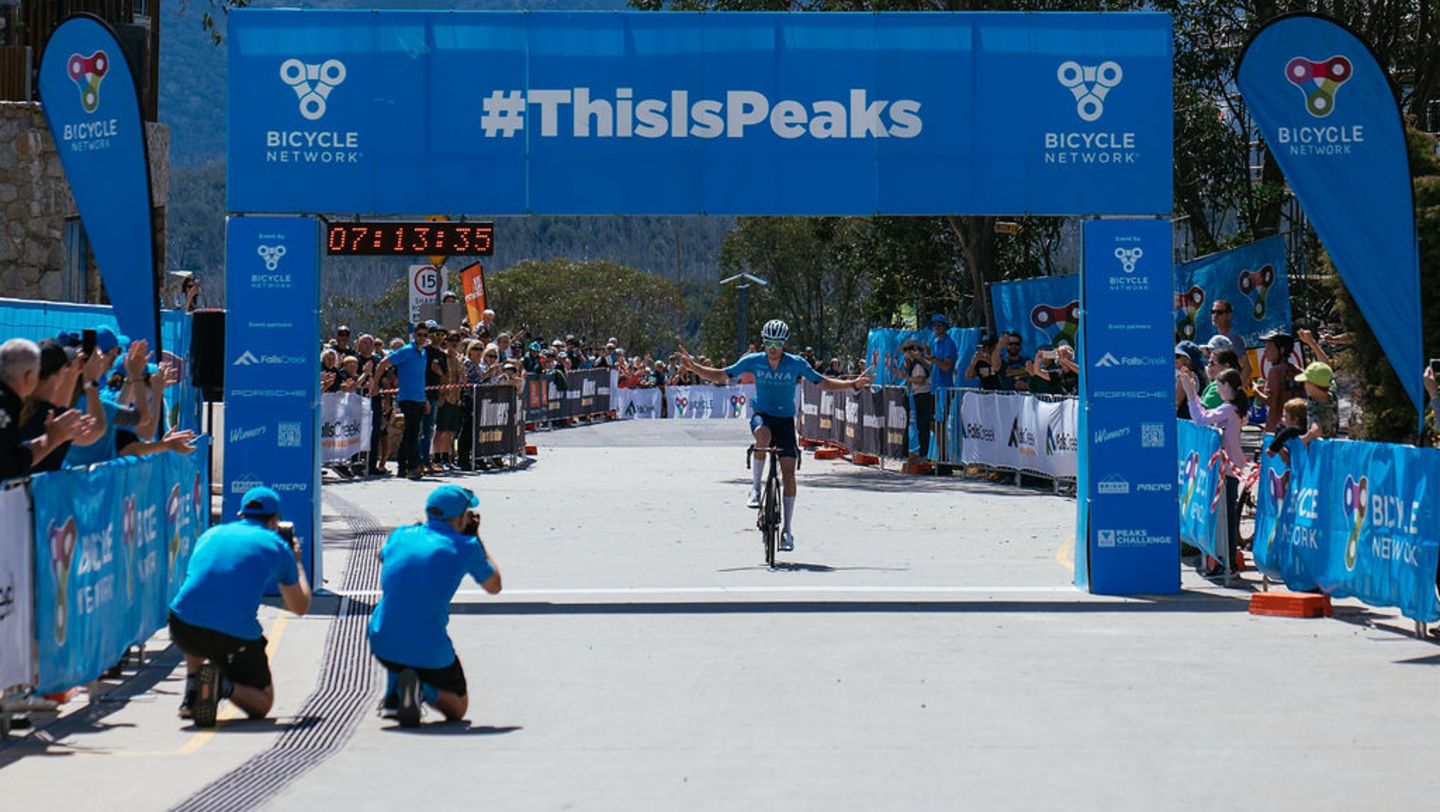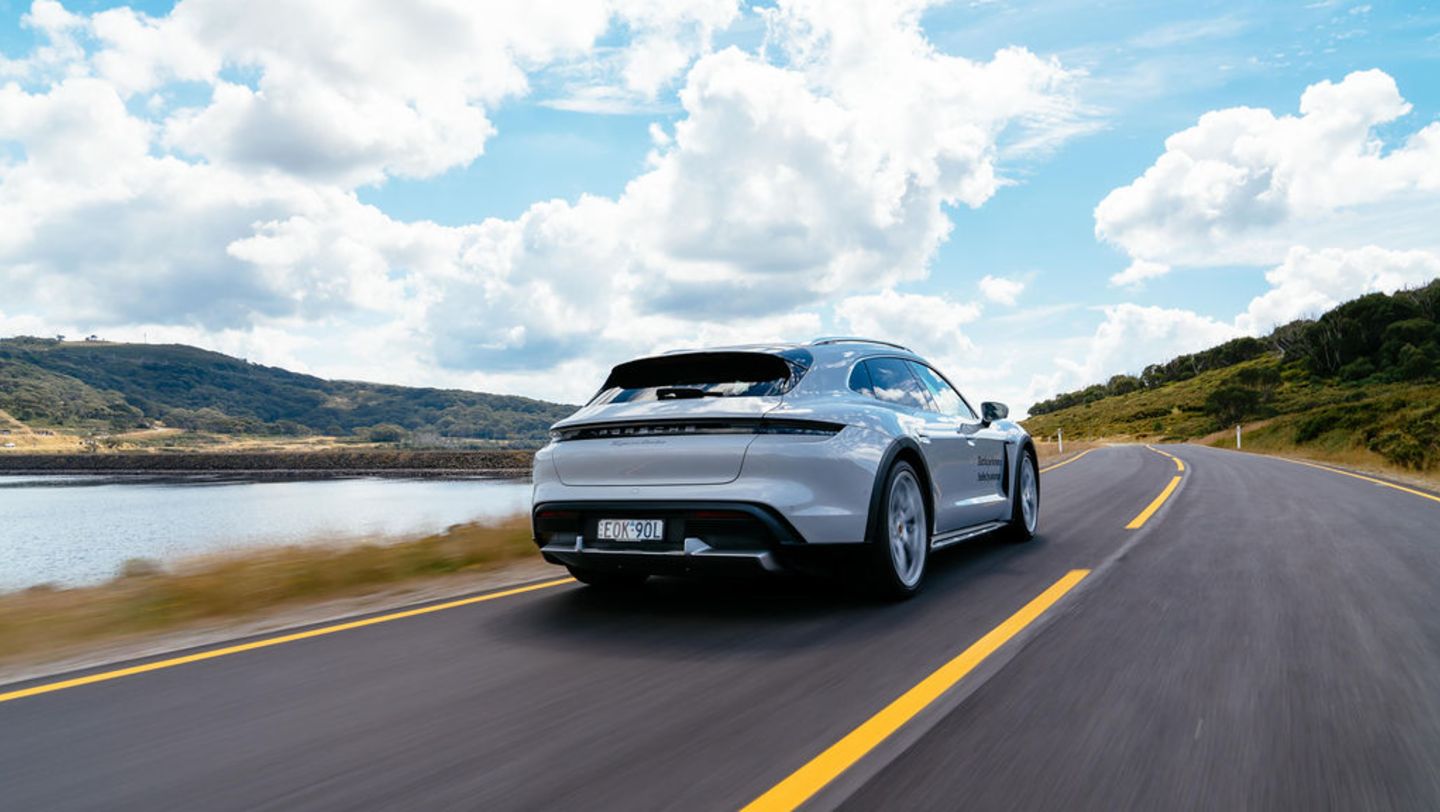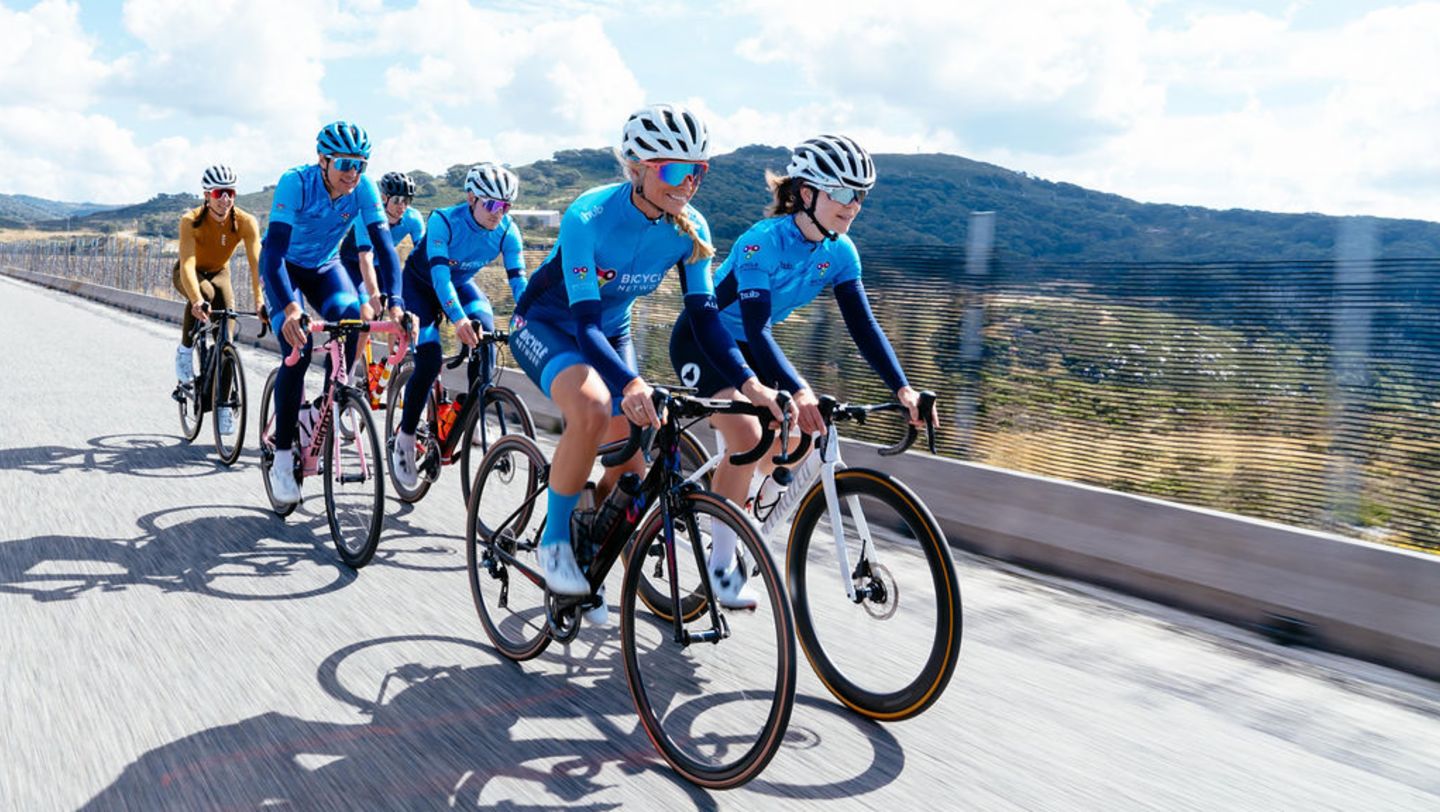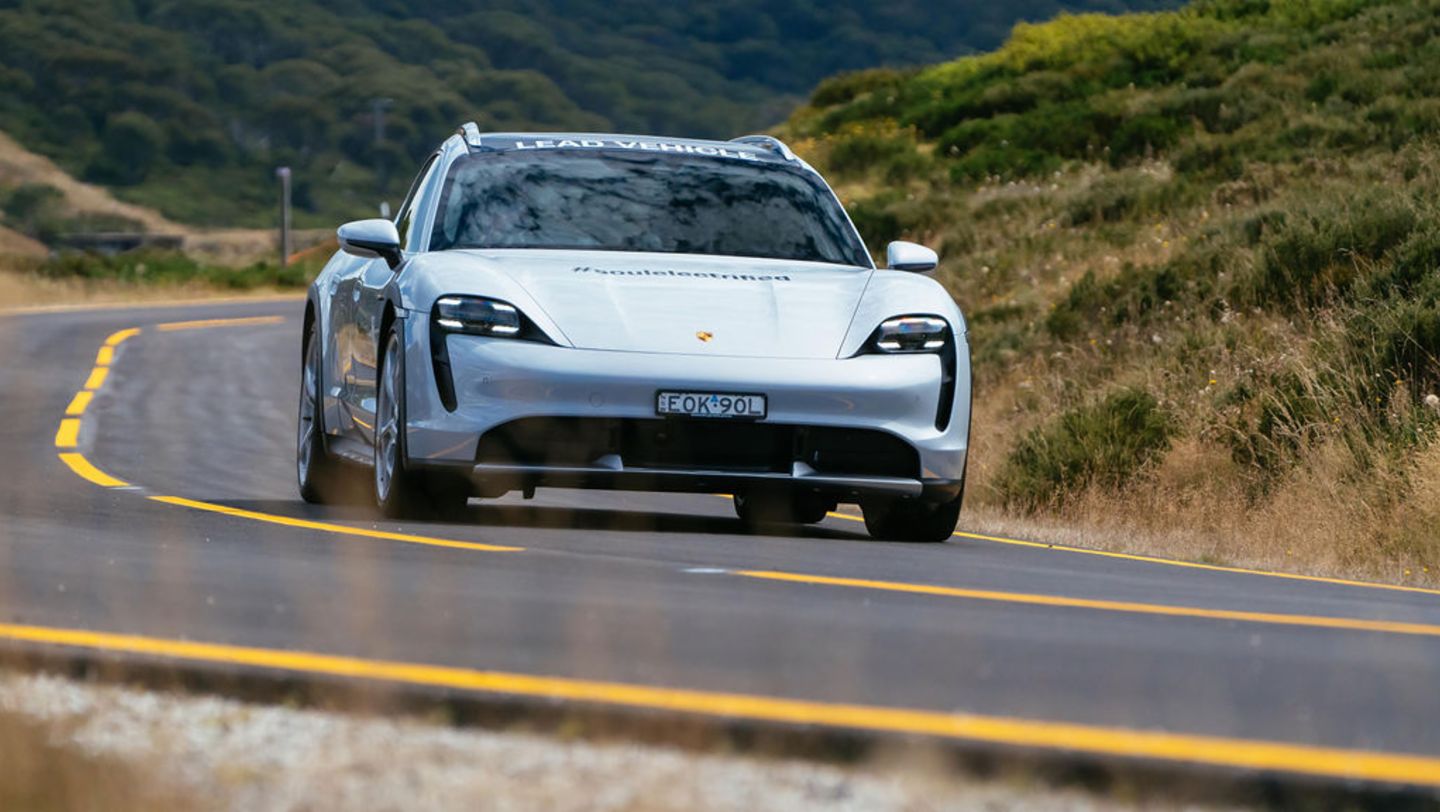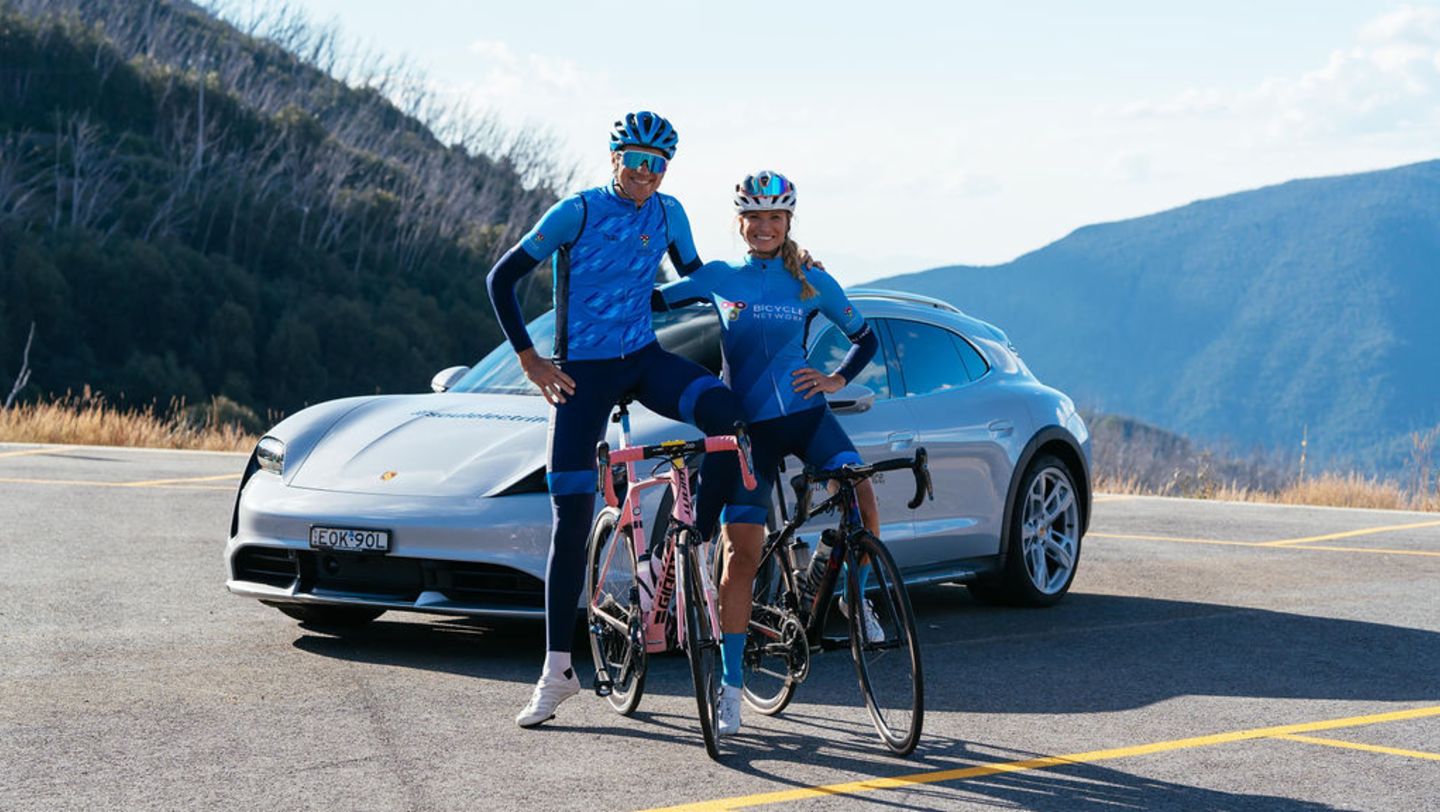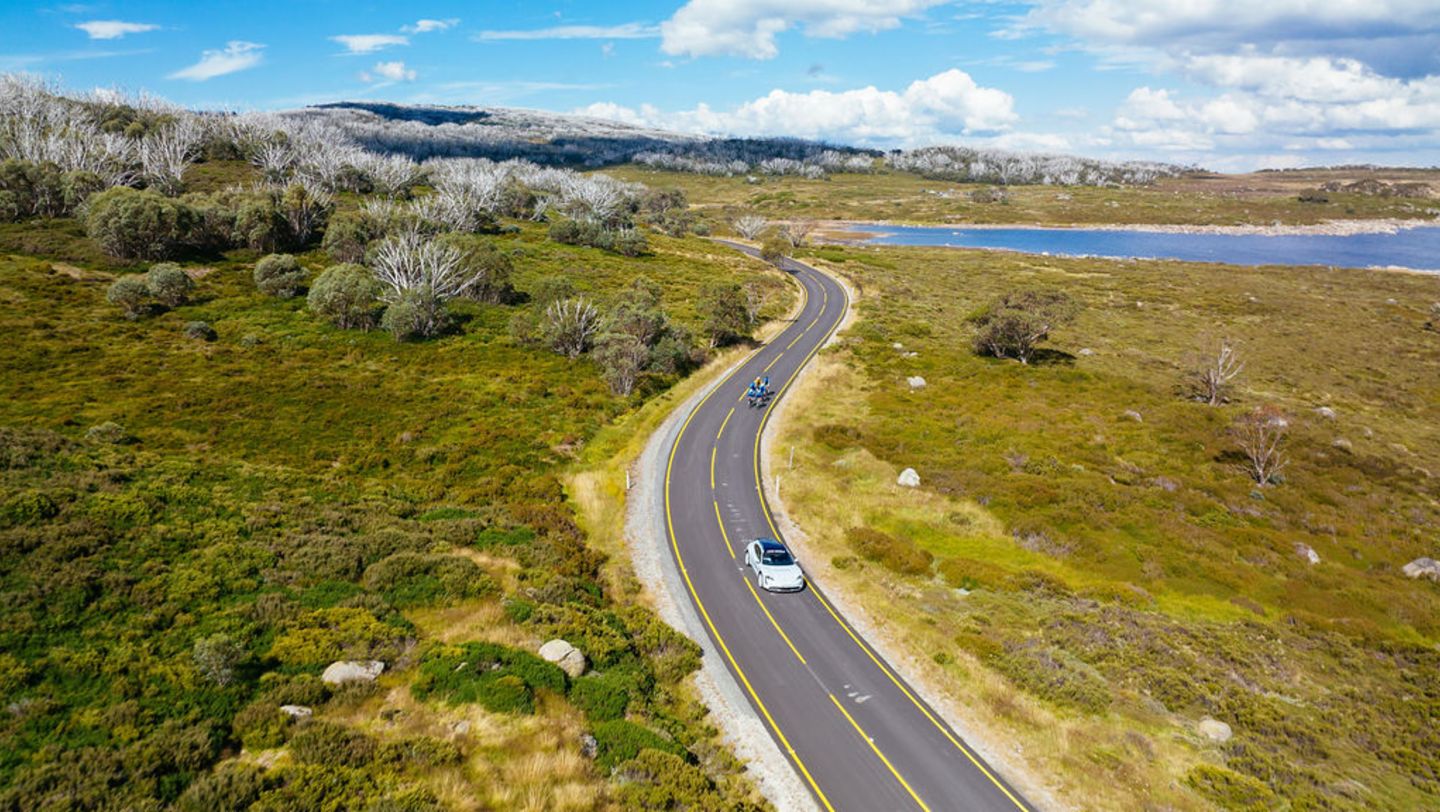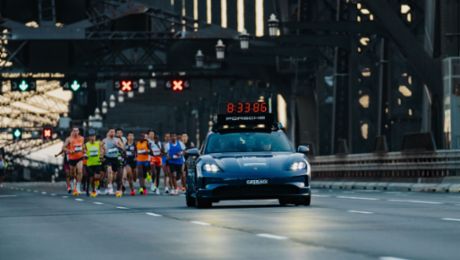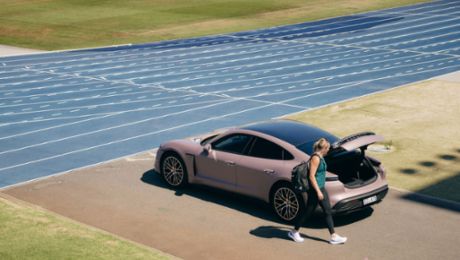Starting at Falls Creek then tackling Tawonga Gap, Mount Hotham and returning up the back of Falls Creek, riders need to complete the punishing 235 kilometres – with over 4,000 metres of climbing – within 13 hours to be considered a finisher.
The fastest of them cross the finish line in around 7-8 hours and each year the best male and female climbers are crowned the King and Queen of the mountain.
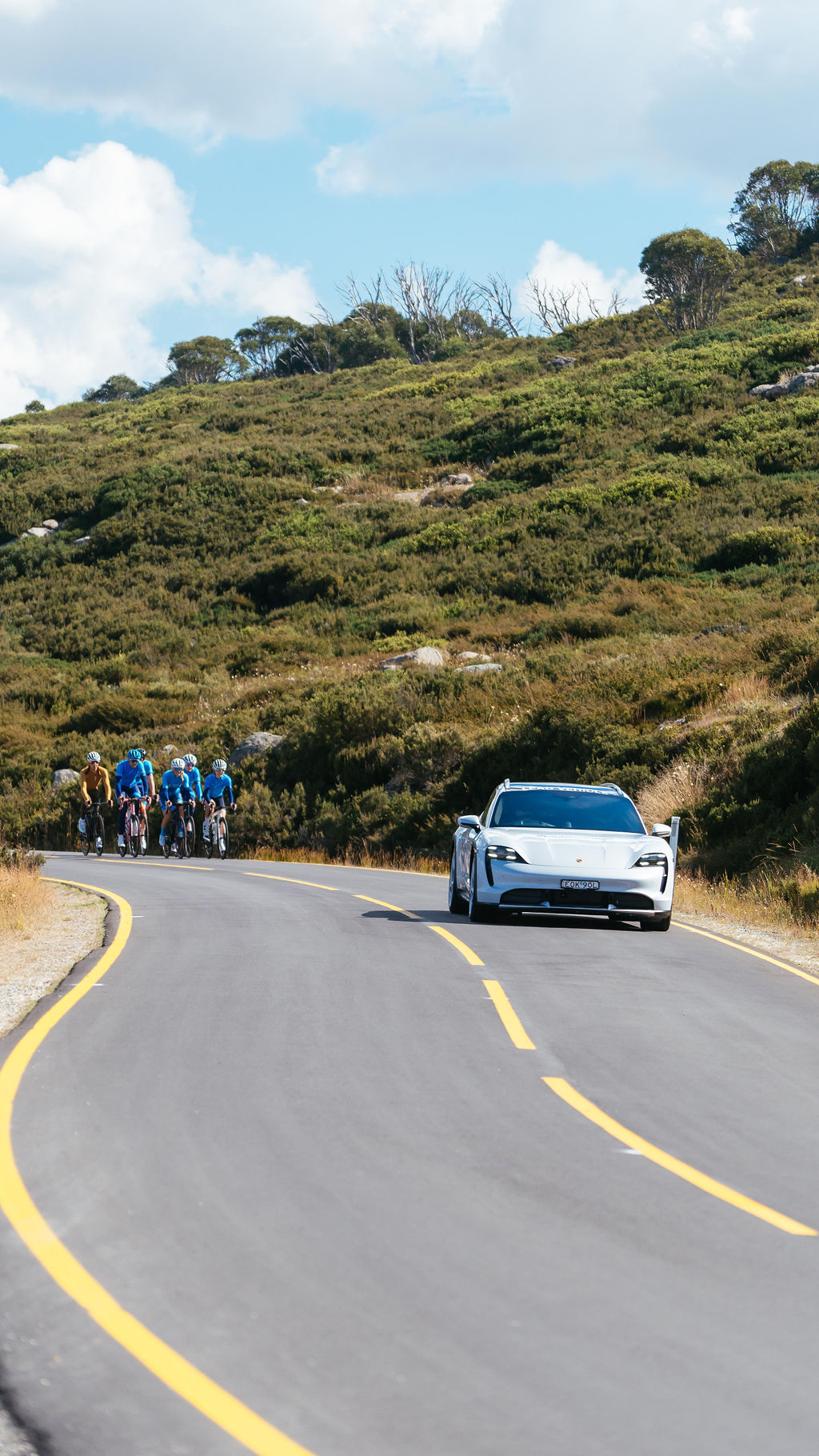
Apart from being in the elite group, the next special achievement is joining the sub-10-hour group.
This year Jack Aitken and Emma Padovan crossed the line first after just 7hr 13min 38sec and 8hr 47min 58sec.
It is the ultimate challenge of mind and body. Dedicated cyclists invest months of training to tackle Peaks Challenge, and even that does not guarantee them a prestigious finisher’s jersey.
“The reason Peaks Challenge is a true challenge is that athletes have to complete it within 13 hours,” explains McCormack
“If you don’t, that’s it, it’s over. If you don’t finish in front of the teams lanterne rouge, which is a term for the last rider, its bad luck, you don’t get your jersey.”
Starting at Falls Creek riders tackle the Mount Beauty Tawonga Gap, a six kilometre climb. They then descend through Germantown to Harrietville and on to a 30 kilometre climb up Mount Hotham. After crossing Dinner Plain for a “quick” lunch stop, the loop goes down towards Omeo and then along undulating terrain to Anglers Rest, with some stunning green hills and sweeping bends.
“You get into a real flow; that stretch is my favorite part. But then you come down along the river and you hit WTF corner and yes, it is what you think it is. You look around the bend and the road is above you. You hit a solid 30-kilometre climb - and that's 200 kilometres into the ride. This is where people come unstuck. The first 12 kilometres of the climb is brutal."
Dedicated cyclists invest months of training to tackle Peaks Challenge, and even that does not guarantee them a prestigious finisher’s jersey.
2022 marks the eleventh year McCormack took on the challenge; not just to finish it, but to help hundreds of people get through it. Each year McCormack has ridden with her now-husband Lee Turner.
“A team of four leads the sub-ten group, which is usually the largest group of riders,” McCormack explains.
“For me helping people getting through the day is huge. That achievement in crossing the line, everyone has a reason for doing it, because it is a challenge that you have to build up to, that’s why I love it and that’s why I love helping people achieving their goals.”
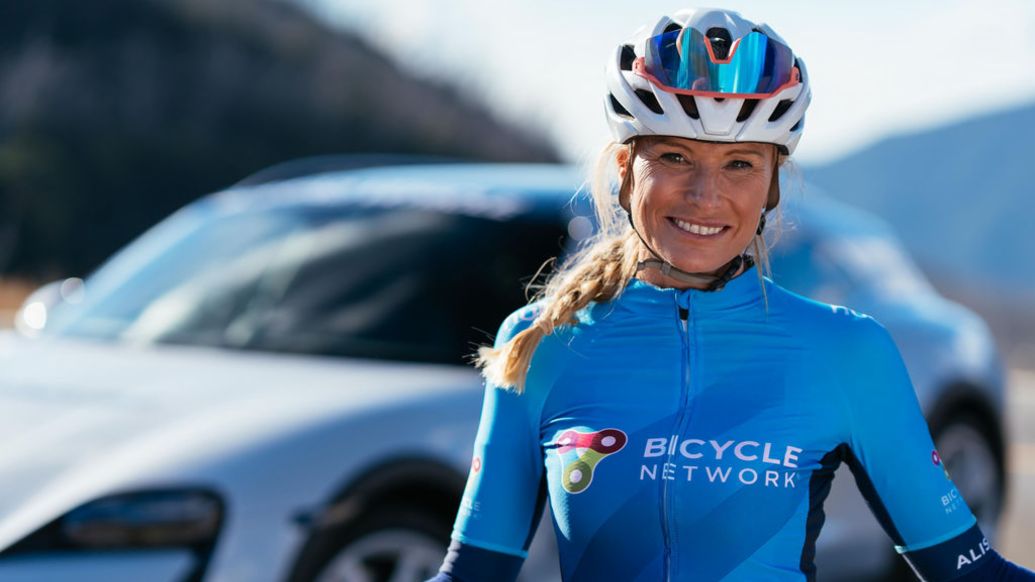
While physical fitness is absolutely necessary, mental strength plays a significant role in finishing the challenge.
“As a group leader your physical fitness reaches beyond of what is required, but that’s not the only thing that gets you through. I always say everyone has their reason for doing it and you just have to tune into that.”
“When the going gets tough you tune in and look at the next tree on the road and get to that, because at some stage throughout the day everyone is going to be suffering. I think this is where women have a really strong mental capacity to get through.”
Over the years McCormack has been working with the Bicycle Network to increase female participation in the Peaks Challenge.
“Women are suited to endurance riding and the challenge, but can find it challenging to commit to it.”
“Women are suited to endurance riding and the challenge.” Alison McCormack
“When I started women’s participation was single digit and we have grown it to double digit participation. Without a doubt it’s increasing and a lot of women want to take on the challenge. Our goal is to have 50:50 equal participation.”
To foster the growth, McCormack is building a community throughout the year with women’s events, creating a forum for women to connect.
To all the women who are thinking about signing up, McCormack’s message is clear: do it.
“Men just sign up and do it. Women tend to make sure that they can do it before they sign up. My advice is: if this is something you want to do it’s the best achievement. With training and commitment you can do it.”
“Of course it is a time commitment, especially when you have family and small children. When you set yourself the challenge, family support is important, they work with you in order to achieve your goal.”
Getting people over the line is the most rewarding for McCormack.
“Peaks has become quite competitive at all levels. It has really become a thing to be the person that finishes first. And then there is the King and Queen of the mountain, which are the fastest male and female on the climbs, but they may not necessarily cross the line first.”
The event’s victors don’t all make the podium. The prestige of making the finishers’ time cut-off – and earning that jersey – remain as strong as ever.
“But as important is the person who finishes just within the 13 hours. Because they have been out there an extra 6 hours and so we will stand at the finish line when we go through and see people come through.”
